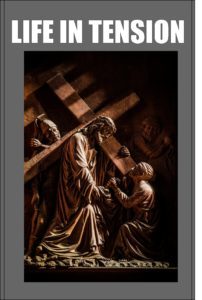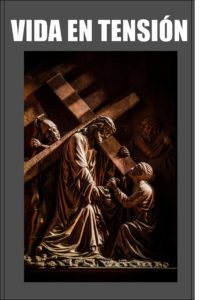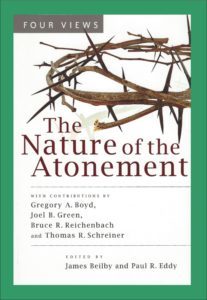Stephen W. Hiemstra's Blog, page 158
May 25, 2020
Identity: Monday Monologues (podcast) May 25, 2020
 Stephen W. Hiemstra 2020 (Ken Burtram Photography)
Stephen W. Hiemstra 2020 (Ken Burtram Photography)Stephen W. Hiemstra 2020 (Ken Burtram Photography)
By Stephen W. Hiemstra
This morning I will share a prayer and reflect on identity. After listening, please click here to take a brief listener survey (10 questions).
To listen, click on this link.
Hear the words; Walk the steps; Experience the joy!
Identity: Monday Monologues (podcast) May 25, 2020
Also see:
Monday Monologue On March 26, 2018
Other ways to engage online:
Author site: http://www.StephenWHiemstra.net,
Publisher site: http://www.T2Pneuma.com.
Newsletter: https://bit.ly/Ready_2020
The post Identity: Monday Monologues (podcast) May 25, 2020 appeared first on T2Pneuma.net.
May 24, 2020
Prayer for an Identity in Christ

By Stephen W. Hiemstra
Almighty Father,
You are the alpha and the omega, the beginning and the end, the one outside of time that created all things.
We praise you for providing the bread of life and well-spring of everlasting life which is your son, Jesus Christ—our redeemer, the author of our faith, and our only true friend.
We thank you for simple things, like family, bread to eat, clean water to drink, work to do, and friends in Christ.
Through the power of your Holy Spirit, help us to share our physical and spiritual gifts with those around us—first our family, then our friends, and even those we do not know well so that your name would be praised among the nations.
Forgive us when we play the fool out of pride, not for you, but out of our own ignorance.
Humble us that we might become worthy servants of your church and not ourselves.Help us to find our identity in you— not in our friends, nor in our wealth nor in our accomplishments, but in you—so that if we play the fool, it is for you and you alone.
In Jesus’ precious name, Amen.
Prayer for an Identity in Chris
Also see:
Believer’s Prayer
Other ways to engage online:
Author site: http://www.StephenWHiemstra.net
Publisher site: http://www.T2Pneuma.com.
Newsletter: https://bit.ly/Ready_2020
The post Prayer for an Identity in Christ appeared first on T2Pneuma.net.
Oración para una Identidad en Cristo

Por Stephen W. Hiemstra
Padre Todopoderoso,
Eres el alfa y el omega, el principio y el fin, el que está fuera del tiempo que creó todas las cosas.
Te alabamos por proporcionar el pan de vida y el manantial de la vida eterna la que es tu hijo, Jesucristo—nuestra redentor, el autor de nuestra fe, y nuestro único verdadero amigo.
Te agradecemos por cosas simples, como familia, pan para comer, limpia agua para beber, trabajo para hacer, y amigos en Cristo.
A través de poder de tu Espíritu Santo, ayúdanos a compartir nuestros dones ambos físicos y espirituales con quienes nos rodean—primero nuestra familia, luego nuestros amigos e incluso aquellos que no conocemos bien para que tu nombre sea se alabado entre las naciones.
Perdónanos cuando jugamos el necio por orgullo, no por ti, sino por nuestra propia ignorancia.
Humíldenos que convertimos sirvientes dignos de tu iglesia y no de nosotros mismos. Ayúdanos a encontrar nuestra identidad en ti—ni en nuestros amigos, ni en nuestras riqueza, ni en nuestras logros, sino en ti—de modo que si jugamos el necio, es para tí y solo tí.
En el precioso nombre de Jesús, Amén.
Oración para una Identidad en Cristo
Ver también:
Oración del Creyente
Otras formas de participar en línea:
Sitio del autor: http://www.StephenWHiemstra.net,
Sitio del editor: http://www.T2Pneuma.com.
Boletín informativo: https://bit.ly/Ready_2020
The post Oración para una Identidad en Cristo appeared first on T2Pneuma.net.
May 22, 2020
Fools for Christ

We are fools for Christ’s sake, but you are wise in Christ. We are weak, but you are strong.You are held in honor, but we in disrepute. To the present hour we hunger and thirst,we are poorly dressed and buffeted and homeless, and we labor, working with our own hands. When reviled, we bless; when persecuted, we endure. (1 Cor 4:10–12)
By Stephen W. Hiemstra
What are you willing to suffer for? What is your passion? (Matt 6:21)
Apostle Paul’s passion was the Gospel and he lived the life of an itinerant evangelist. Paul never married nor had any children and, in spite of being highly educated, gave up a priestly or academic life. When Paul described himself as a fool for Christ (2 Cor 12:10–11), his Jewish parents probably agreed.
Imagine attending your thirtieth doctoral reunion and rising to address your fellow graduates, saying:
I am talking like a madman—with far greater labors, far more imprisonments, with countless beatings, and often near death. Five times I received at the hands of the Jews the forty lashes less one. Three times I was beaten with rods. Once I was stoned. Three times I was shipwrecked; a night and a day I was adrift at sea; on frequent journeys, in danger from rivers, danger from robbers, danger from my own people, danger from Gentiles, danger in the city, danger in the wilderness, danger at sea, danger from false brothers; in toil and hardship, through many a sleepless night, in hunger and thirst, often without food, in cold and exposure. And, apart from other things, there is the daily pressure on me of my anxiety for all the churches. (2 Cor 11:23–28)
Unlikely to have been church leaders, Paul’s classmates were more likely to have been synagogue leaders, high priests, government officials, and college professors. Unlike many of these, Paul hungered and thirsted for righteousness, treated his suffering like a resume, and refused a salary at one point to maintain the integrity of his Gospel message (1 Cor 9:4; 2 Cor 11:7). Like the one who sent him, Paul strived to live life righteously.
No doubt, Paul’s life of integrity also put him in tension with God. For example, God’s answer to his prayer over a thorn in the flesh—“My grace is sufficient for you, for my power is made perfect in weakness” (2 Cor 12:9)—likely caused Paul much anguish before he developed the serenity to boast about God’s object lesson.
Another such object lesson is the Eucharist which reminds us of Christ by focusing on objects of hunger (bread) and thirst (water/wine), much like several of Jesus’ miracles. Jesus’ first miracle was to turn water into wine (John 2:1–10) while others involved multiplying bread and fish (John 4:32, 6:11). The transformation of simple things like food and water into sacred objects must have perplexed the Greeks who looked down on the physical world (earth), but looked up to the spiritual world (heaven).
The sacraments and Jesus’ miracles point to a simple but important spiritual reality: “Man shall not live by bread alone.” (Luke 4:4; Deut 8:3) Just as a sacrament is an outward sign with an inward meaning, physical things and circumstances have both outward and inner meanings associated with them, which, for example, leads Paul to describe the body as the temple of God (1 Cor 6:19). If the physical body can become the temple of God and mere food and drink can be sacraments, then food and drink stand at an important boundary between the physical and spiritual realms where spiritual transformation can take place and God’s love can be expressed as care for the poor and hungry.
For example, God identifies himself directly with the poor and hungry in the final judgment, as we read: Then the righteous will answer him, saying, Lord, when did we see you hungry and feed you, or thirsty and give you drink? (Matt 25:37) Here, attitude and actions regarding the poor and hungry directly identify Christ’s followers, modeled on the charity of Christ himself: “And he said to me, It is done! I am the Alpha and the Omega, the beginning and the end. To the thirsty I will give from the spring of the water of life without payment.” (Rev 21:6)If Jesus practices charity, then we should too because our charitable obligation depends, not on the good behavior of the recipients, but on our own identity in Christ:
if your enemy is hungry, feed him; if he is thirsty, give him something to drink; for by so doing you will heap burning coals on his head. Do not be overcome by evil, but overcome evil with good. (Matt 5:43–46, Rom 12:20–21)
Our identity in Christ leads us, not to judge the sinful, but to help the needy, as we read: “For God did not send his Son into the world to condemn the world, but in order that the world might be saved through him.” (John 3:17) Living in a wealthy nation, our charitable obligation—providing for the physical needs of those less fortunate—is bigger than most.
If the first sin of the Bible was to lust after a tree fruit (Gen 6), then the mark of the disciple would be to model Christ’s abundant provision (Rev 21:6) and to defeat the urge to sin.
Fools for Christ
Also see:
Preface to a Life in Tension
Other ways to engage online:
Author site: http://www.StephenWHiemstra.net
Publisher site: http://www.T2Pneuma.com
Newsletter: https://bit.ly/Ready_2020
The post Fools for Christ appeared first on T2Pneuma.net.
Necios por Cristo

Nosotros somos necios por amor de Cristo, pero ustedes, prudentes en Cristo. Nosotros somos débiles, pero ustedes, fuertes. Ustedes son distinguidos, pero nosotros, sin honra. Hasta el momento presente pasamos hambre y sed, andamos mal vestidos, somos maltratados y no tenemos dónde vivir. (1 Cor 4:10-11)
Por Stephen W. Hiemstra
¿Para qué estás listo a sufrir? ¿Cuál es tu pasión? (Matt 6:21)
La pasión del apóstol Pablo era el evangelico y vivió la vida de un evangelista itinerante. Pablo nunca se casóni tuvo ninguno niños y, a pesar de ser educado altísimo, abandonó una vida sacerdotal o académica. Cuando Pablo describió si mismo como un tonto para Cristo (2 Cor 12:10-11), su padres judíos estuvieron probablemente de acuerdo.
Imagínese asistir a su trigésima reunión doctoral y levantarse para dirigirse a sus compañeros graduados, diciendo:
¿Son servidores de Cristo? (Hablo como si hubiera perdido el juicio) yo más. En muchos más trabajos, en muchas más cárceles, en azotes un sinnúmero de veces, con frecuencia en peligros de muerte. Cinco veces he recibido de los Judíos treinta y nueve azotes. Tres veces he sido golpeado con varas, una vez fui apedreado, tres veces naufragué, y he pasado una noche y un día en lo profundo. Con frecuencia en viajes, en peligros de ríos, peligros de salteadores, peligros de mis compatriotas, peligros de los Gentiles, peligros en la ciudad, peligros en el desierto, peligros en el mar, peligros entre falsos hermanos; en trabajos y fatigas, en muchas noches de desvelo, en hambre y sed, con frecuencia sin comida, en frío y desnudez. Además de tales cosas externas, está sobre mí la presión cotidiana de la preocupación por todas las iglesias. (2 Cor 11:23-28)
Es poco probable que hayan sido líderes de la iglesia, los compañeros de clases de Pablos tenían más probablemente de haber sido llíderes de sinagogas, sumos sacerdotes, funcionarios del gobierno, y profesores de la colegia. A diferencia de muchos de estos, Pablo tuvo hambre y sed para rectitude, trató su sufrimiento como un resume, y rechazó un salario en un punto a mantener la integridad de su mensaje evangelica (1 Cor 9:42; 2 Cor 11:7). Al igual que el quien lo envió, Pablo trabajo a vivir la vida con rectitud.
Sin duda, la vida de integridad de Pablo también lo puso en tensión con Dios. Por ejemplo, la respuesta de Dios sobre de su oración sobre su espina en la carne—“Te basta mi gracia, pues mi poder se perfecciona en la debilidad.” (2 Cor 12:9)—causó mucha angustia a Pablo antes de desarrollar la serenidad a jactarse sobre la lección objetiva de Dios.
Otra lección objetiva es la Eucaristía, que nos recuerda a Cristo al enfocarnos en objetos de hambre (pan) y sed (agua/vino), muy parecidos a varios milagros de Jesús. El primer milagro de Jesús fue convertir el agua en vino (John 2:1-10), mientras otros consistió en multiplicar el pan y el pescado (John 4:32, 6:11). La transformación de cosas simple como alimentos y agua en objetos sagrados debe haber perplexodo los griegos quien no respetan al mundo físico (terreno), pero respetan al mundo espiritual (cielo).
Los sacramentos y los milagros de Jesús apuntan a una realidad espiritual que es simple pero importante: “No solo de pan vivirá el hombre.” (Luke 4:4; Deut 8:3) Así como un sacramento es un signo externo con un significado interno, cosas fisicas y circunstancias ambas tienen significados externos y internos asociados con ellos, lo que, por ejemplo, lleva a Pablo a describir el cuerpo como un templo de Dios (1 Cor 6:19). Si el cuerpo físico puede convertirse en un templo de Dios y mero alimentos y bebidas pueden ser sacramentos, entonces alimentos y bebidas se encuentran en una frontera importante entre el reino físico y espiritual donde las transformaciones espirituales puede tener lugar y el amor de Dios pueden expresarse como cuidado para el pobre y hambriento.
Por ejemplo, Dios se identica directamente con los pobres y hambrientos en el juicio final, mientras leemos: Entonces los justos le responderán, diciendo: Señor, ¿cuándo te vimos hambriento y te dimos de comer, o sediento y te dimos de beber? (Matt 25:37) Aqui, la actitud y las acciones con respeto a los pobres y hambrientos identifican directamente los seguidores de Cristo, siguiendo el modelo de la caridad de Cristo mismo: “También me dijo: Hecho está. Yo soy el Alfa y la Omega, el Principio y el Fin. Al que tiene sed, yo le daré gratuitamente de la fuente del agua de la vida.” (Rev 21:6) Si Jesús practica caridad, entonces deberíamos también porque nuestra obligación caritativa depende, no del buen comportamiento de los receptores, sino de nuestra propia identidad en Cristo:
Pero si tu enemigo tiene hambre, dale de comer; y si tiene sed, dale de beber, porque haciendo esto carbones encendidos amontonaras sobre su cabeza. No seas vencido por el mal, sino vence el mal con el bien. (Matt 5:43–46, Rom 12:20–21)
Nuestra identidad en Cristo nos lleva, no a juzgar a los pecadores, sino a ayudar a los necesitados, mientras leemos: “Porque Dios no envió a su hijo al mundo para juzgar al mundo, sino para que el mundo sea salvo por el.” (John 3:17) Al vivir en una nación rica, nuestra obligación caritativa, que cubre las necesidades físicas de los menos afortunados, es mayor que la mayoría.
Si el primer pecado de la Biblia fuera codiciar un árbol de fruta (Gen 6), entonces la marca de un discípulo seria a modelar la provision abundante de Cristo (Rev 21:6) y vencer la tentación de pecar.
Necios por Crist
Ver también:
Gospel as Divine Template
Otras formas de participar en línea:
Sitio del autor: http://www.StephenWHiemstra.net,
Sitio del editor: http://www.T2Pneuma.com.
Boletín informativo: https://bit.ly/Ready_2020
The post Necios por Cristo appeared first on T2Pneuma.net.
May 20, 2020
Water Cooler Observations, May 20, 2020

By Stephen W. Hiemstra
As I write this morning (5/19/2020), the rate of increase in corona virus deaths in Fairfax County, Virginia and other places has begun to decline. Worldwide rates of increase in daily deaths that were at the end of April in 2 to 5 percent range are now in the 1 to 3 percent range. Calculus students will all remember that a maximum is reached when the rate of increase in change falls to zero. While this pandemic is clearly not over because we still do not have effective tests, treatments, and vaccines, these figures are encouraging.
What’s Changed?
In our family, 2020 is likely to be remembered as the year of the cook. Part of the pleasure of becoming reacquainted as a family has been a new found interesting in cooking shows, cookware, and much better meals. No gap between millennials and boomers has emerged in this trend. We are not only eating better, we are eating more healthy. Who would have thunk that a vegetarian dish could actually be tasty and filling?
Our relationship with technology has obviously changed. While I have participated in at least four Zoom conferences a week, my wife, Maryam, has learned to teach and interact with students online. Virtually every church now has an online service through Facebook, YouTube, or a streaming addition to their website. Many churches now also offer telephone worship for their seniors who are not tech savvy. Now that these skills and investments have been made and proven effective, it is likely that they will remain in service long after the pandemic is behind us.
As an author, I have noticed an increase in book sales. Because I write about Christian spirituality, this trend suggests that people are starting to pay greater attention to faith.
Phases of a Transition
A transition is a period of change consisting of three phases: beginning, middle, and end. In the beginning of a transition, one realizes that things are different but look backwards to the way things used to be. In the middle of a transition, no clear direction is apparent and uncertainty reaches a fever-pitch. In the end of a transition, the end of the tunnel is in sight and one begins to sprint towards it.
In early March we began this pandemic transition practicing a low of panic and believing that this crisis would last only a couple weeks. From mid-March until early May, we found ourselves in the middle phase where uncertainty, denial, and anger were readily obvious. This last week we began what will be a lengthy end phase to this transition.
The end phase is distinguished by the widespread appreciation for the need for testing and the development of vaccines and treatments. It will be a long end phase because appreciation of what needs to be done is constrained by the technical details of actually producing the required tests, vaccines, and treatments.
Innovation
The biblical transition most often discussed is the Exodus of the nation of Israel out of Egypt which was followed by forty years in the desert and entry into the Promised Land. In spite of the drama of the Exodus and the entry, it was the forty years in the desert where the people of Israel discovered their faith in God. In the middle of the transition, with all its uncertainty, we innovate and discover whose we really are.
A persistent question over the past couple weeks has been: how much of the faith and serenity of my grandparents arose because they lived through things like the Spanish flu, two world wars, and the Great Depression? We live in a similar season of trials and temptations—will we learn similar lessons? If so, which ones?
Water Cooler Observations, May 20, 2020
Also see:
Water Cooler Observations, May 13, 2020
Water Cooler Observations, May 6, 2020
Water Cooler Observations, April 29, 2020
Interview about the Corona Life in English and Spanish with Stephen W. Hiemstra, April 24, 2020
Water Cooler Observations, April 22, 2020
Water Cooler Observations, April 15, 2020
Water Cooler Observations, April 8, 2020
Water Cooler Observations, April 1, 2020
Water Cooler Observations, March 25, 2020
Corona Virus Versus the Flu
Black Plague
CDC Flu Statistics
Managing Change
Believer’s Prayer
Other ways to engage online:
Author site: http://www.StephenWHiemstra.net
Publisher site: http://www.T2Pneuma.com.
Newsletter: https://bit.ly/Release_2020
The post Water Cooler Observations, May 20, 2020 appeared first on T2Pneuma.net.
May 19, 2020
Dive Deep into the Atonement

James Beilby and Paul R. Eddy [Editors]. 2006. The Nature of the Atonement: Four Views. Downers Grove: IVP Academic.
Review by Stephen W. Hiemstra
Renewed interest in the atonement of Christ arises today partly because it has become so common to meet “atonement deniers” in the church today. Atonement deniers refuse to talk about sin believing that we are basically good and have no need for Christ’s death on the cross to mitigate that sin. Already in 1937, Richard Niebuhr observed this problem:
“A God without wrath brought men without sin into a kingdom without judgment through the ministration of a Christ without a cross.”
No cross, no resurrection. Jesus cannot have been divine and his claim on our lives is merely nice to know. Christmas morphs from the birth of Christ into winter solstice; Lent morphs from a season of reflection on sin into a season of self-help followed by spring break. So exactly what was the work of Christ if not to die for our sins, as reported throughout the New Testament? (e.g. 1 Cor 15:3) Was the atonement “cosmic child abuse,” as some feminists have alleged? (10)
Introduction
The authors of The Nature of the Atonement: Four Views work to explain the atonement rather than to justify it. The four views are:
Christus Victor view (Gregory A Boyd)
Penal Substitution view (Thomas R. Scheiner)
Healing view (Bruce R. Reichenbach) and
Kaleidoscopic view (Joel B. Green).
Each of the views has its champion who describes the view and rebuts alternative views in the style of statement and response drawn from philosophy. The first three of these views argue that they have priority over the others, while the fourth argues against any such priority (21).
The editors, James Beilby and Paul R. Eddy, teach theology at Bethel University in St. Paul, Minnesota and write the introduction. They define atonement as a uniquely English theological term meaning: “a reconciled state of ‘at-one-ness’ between parties formerly alienated in some manner.” (9)
Christus Victor View
The Christus Victor view asserts that spiritual warfare is the common thread running through scripture. In Jesus Christ, God broke into history to destroy the power of Satan that has kept us in bondage to sin and restored humanity into their rightful position of guardians of the earth (27-29). In this context, sin is both an individual behavior and a communal problem, which suggests why the power of sin cannot be broken without divine intervention. If evil is embedded in folkways and cultural institutions, then individual choices cannot bring full forgiveness, restauration, and healing.
This view has priority over the others because it ties together all strands of scripture and the life, death, and resurrection of Christ. All aspects of Jesus’ life and ministry work together to break the powers of the destructive systems and evil forces of Satan. Once Satan is defeated, the kingdom of God is established once again on earth (39-40). This is why the Christus Victor view has been the dominant view throughout the history of the church (46).
While some ask how a loving God could not just forgive us all. The response is that God could, but Satan, the accuser, would not allow it. This is why Satan must first be overthrown in order for God to allow forgiveness through Jesus Christ (103).
Penal Substitution View
Penal Substitution view starts with an observation:
“Our fundamental problem as human beings is not that outside powers victimize us. The root problem is that we ourselves are radically evil and we are wrongly related to God himself.” (68)
This view has priority among evangelicals today because the root cause of the problem is not that Satan has enslaved us, but the we ourselves are flawed—bad seed. “For all have sinned and fall short of the glory of God” (Rom 3:23 ESV). This view is accordingly easier for modern people to accept, in part, because they want to be in control, as with original sin. Still, you do not need to believe in God to understand that even Mayberry has a problem.
Healing View
The Healing view begins with the idea that salvation is effectively the healing of the sickness brought about by sin—the wages of sin are death (Rom 6:23). We read:
“Both Isaiah 53 and Romans 8:3 make a symbolic connection of Christ’s atonement with Israel’s national atonement ritual (Lev 16). The sacrifice had two steps. One was the slaughter of animals for the sin offering; the other was the release of the sin-laden goat into the wilderness. The first brings atonement through suffering and death; the blood symbolically purifies the community, consecrating it from its state of uncleanness. The second symbolically bears the sins of the community away from the community.” (136)
Of course, Jesus in his healing ministry often started by telling those being healed that their sins had been forgiven. We read:
“Which is easier, to say to the paralytic, Your sins are forgiven, or to say, Rise, take up your bed and walk? But that you may know that the Son of Man has authority on earth to forgive sins”– he said to the paralytic—I say to you, rise, pick up your bed, and go home.” (Mark. 2:9-11 ESV)
The priority of healing is hinted at by the etymology of the word, salvation, which in the Greek is associated with medicine (152).
Kaleidoscopic View
The Kaleidoscopic view begins by asking why we assume that Jesus’ life, ministry, death, and resurrection should have only a single meaning. If his life touched on many social, political, and religious currents, then the meaning of his death must also have a more nuanced meaning (163). This is perhaps why the confessions of the church do not highlight only one meaning of the atonement.
Assessment
The authors of The Nature of the Atonement: Four Views parse four views of the atonement: the Christus Victor view, the Penal Substitution view, the Healing, and the Kaleidoscopic view. Each view is presented and contrasted with the other views. I learned a great deal from this discussion; perhaps, you will too.
References
Richard Niebuhr. 1937.The Kingdom of God in America. New York: Harper Torchbooks.
Footnotes
https://en.wikipedia.org/wiki/Mayberry.
Dive Deep into the Atonement
Also see:
Books, Films, and Ministry
Other ways to engage online:
Author site: http://www.StephenWHiemstra.net,
Publisher site: http://www.T2Pneuma.com.
Newsletter: https://bit.ly/Release_2020
The post Dive Deep into the Atonement appeared first on T2Pneuma.net.
May 18, 2020
More Passion: Monday Monologues (podcast) May 18, 2020
 Stephen W. Hiemstra 2020 (Ken Burtram Photography)
Stephen W. Hiemstra 2020 (Ken Burtram Photography)By Stephen W. Hiemstra
This morning I will share a prayer and reflect more on passion. After listening, please click here to take a brief listener survey (10 questions).
To listen, click on this link.
Hear the words; Walk the steps; Experience the joy!
More Passion: Monday Monologues (podcast) May 18, 2020
Also see:
Monday Monologue On March 26, 2018
Other ways to engage online:
Author site: http://www.StephenWHiemstra.net,
Publisher site: http://www.T2Pneuma.com.
Newsletter: https://bit.ly/Release_2020
The post More Passion: Monday Monologues (podcast) May 18, 2020 appeared first on T2Pneuma.net.
May 17, 2020
Passion Prayer

By Stephen W. Hiemstra
Good Shepherd,
We praise you for the gifts of Eden—fertile land, water and food, and the security of your presence.
Keep our hands busy; guard our minds; and give us hearts that yearn only for you.
Forgive us that we are not fit for Eden; that we are not satisfied with your gifts; that we have not valued your presence; that our hands have been idle, our minds set on physical things, and our hearts easily tempted by crass things.
Restore us—make us fit custodians of your garden.
Let our hearts yearn for your presence and our minds hunger and thirst for your righteousness, that all the days of our lives our hands may praise you with good works.
Through the power of the Holy Spirit and in Jesus’ name, Amen.
Passion Prayer
Also see:
Believer’s Prayer
Other ways to engage online:
Author site: http://www.StephenWHiemstra.net
Publisher site: http://www.T2Pneuma.com.
Newsletter: https://bit.ly/Release_2020
The post Passion Prayer appeared first on T2Pneuma.net.
Oración de Pasión

Por Stephen W. Hiemstra
Buen Pastor,
Te alabamos por los dones de Edén—tierra fértil, agua and alimentos, y la seguridad de tu presencia.
Mantén nuestras manos ocupadas; guarda nuestras mentes; y danos corazones que solo anhelen por tí.
Perdónanos que no somos aptos para Edén; que no estamos satisfecho de tus dones; que no hemos valorado tu presencia; que nuestras manos han estado inactivas, nuestras mentes puesta por cosas fisicales, y nuestros corazones fácilmente tentados por cosas groseras.
Restauranos—haganos los aptos custodianos de tu jardín. Que nuestros corazones anhelan por tu presencia y nuestra mentes tengan hambre y sed por tu rectitud, para que todos los días de nuestras vidas nuestras manos alaben te con buenas obras.
A través del poder del Espíritu Santo y en el nombre de Jesús, Amén.
Oración de Pasión
Ver también:
Oración del Creyente
Otras formas de participar en línea:
Sitio del autor: http://www.StephenWHiemstra.net,
Sitio del editor: http://www.T2Pneuma.com.
Boletín informativo: https://bit.ly/Release_2020
The post Oración de Pasión appeared first on T2Pneuma.net.



